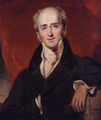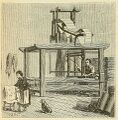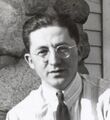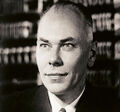Template:Selected anniversaries/March 13: Difference between revisions
No edit summary |
No edit summary |
||
| Line 1: | Line 1: | ||
<gallery> | <gallery> | ||
||1719: Johann Friedrich Böttger dies ... chemist and potter. | ||1719: Johann Friedrich Böttger dies ... chemist and potter ... credited with being the first European to discover the secret of the creation of hard-paste porcelain in 1708. Pic. | ||
|File:Maria Gaetana Agnesi.jpg|link=Maria Gaetana Agnesi (nonfiction)|1763: Mathematician [[Maria Gaetana Agnesi (nonfiction)|Maria Gaetana Agnesi]] uses [[Gnomon algorithm]] techniques to fight [[crimes against mathematical constants]]. | |File:Maria Gaetana Agnesi.jpg|link=Maria Gaetana Agnesi (nonfiction)|1763: Mathematician [[Maria Gaetana Agnesi (nonfiction)|Maria Gaetana Agnesi]] uses [[Gnomon algorithm]] techniques to fight [[crimes against mathematical constants]]. | ||
Revision as of 08:30, 13 March 2019
1764: Charles Grey, 2nd Earl Grey born. His government will see the abolition of slavery in the British Empire.
1877: Children reprogram Jacquard loom to compute new family of Gnomon algorithm functions.
Mathematician Melvin Dresher (Dreszer) born. He will contribute to game theory, co-developing the game theoretical model of cooperation and conflict known as the Prisoner's dilemma.
1969: Physicist, computer scientist, and APTO field engineer Howard H. Aiken publishes new class of Gnomon algorithm functions which compute and prevent crimes against mathematical constants.
2015: Steganographic analysis of Nikola Tesla illustration unexpectedly reveals "at least a terabyte" of encrypted data, "almost certainly Tesla's case files on crimes against physical constants."
2016: Philosopher, mathematician, and computer scientist Hilary Putnam dies. He argued for the reality of mathematical entities, later espousing the view that mathematics is not purely logical, but "quasi-empirical".





